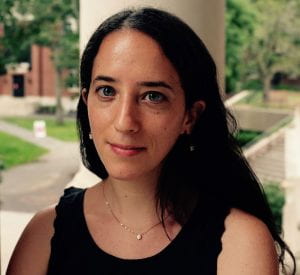CURRENTLY

I am a postdoctoral College Fellow at Harvard, where I teach history and social theory. I received my Ph.D. in History from Harvard in May of 2022. I am also a recipient of the Charlotte W. Newcombe Doctoral Dissertation Fellowship from the Institute for Citizens & Scholars (formerly the Woodrow Wilson Foundation), the Bowdoin Prize for Graduate Essay in the English Language, the Edmond J. Safra Center for Ethics Graduate Fellowship, and the Barrington Moore Prize for Excellence in Advising for my work teaching and advising undergraduates. My research and writing has appeared in the American Historical Review, Modern Intellectual History, New German Critique, Aeon, Boston Review, and Public Books.
I study the history of Europe in the nineteenth and twentieth century, with particular interests in the history of European empires, decolonization, and the ways in which colonial and settler colonial histories have shaped Europe and the modern world.
My first book project, provisionally entitled “Found in Translation: Empire and the Invention of the Social Sciences,” argues that colonial sources influenced the European founders of the modern disciplines of sociology and anthropology far more profoundly and extensively than we have previously recognized. Through research that I carried out in Britain, Australia, France, and the U.S., I found that key innovations in the history of modern social thought, including new ideas about the nature of power, selfhood, and the social contract, trace back to a surprising source: nineteenth-century missionaries who worked on the frontiers of expanding empires to convert indigenous people to Christianity. Conversion, however, went both ways. In their efforts to produce vernacular scripture, missionaries encountered a range of indigenous concepts that resisted translation into English. I then show how those concepts circulated back to Europe through letters, museum artifacts, and published texts. “Found in Translation” explores the indigenous origins of the modern European social sciences, while also reflecting on topics of enduring relevance: state power and local resistance, religion and political life, and the legacies of colonial and settler colonial expansion.
Methodologically, my research blends close reading of published texts, archival research in missionary, state, and university collections, and quantitative digital humanities tools. In particular, to provide global context for my archival discoveries, I assembled a dataset of the one thousand distinct translations of scripture published since Gutenberg’s bible and then created a visualization to map the spread of vernacular scripture over time. This data highlights the significance of missionary translation work in the nineteenth and early twentieth centuries. More generally, my approach allows us to consider a wider range of sources—and, by extension, people—as foundational to the production of knowledge.